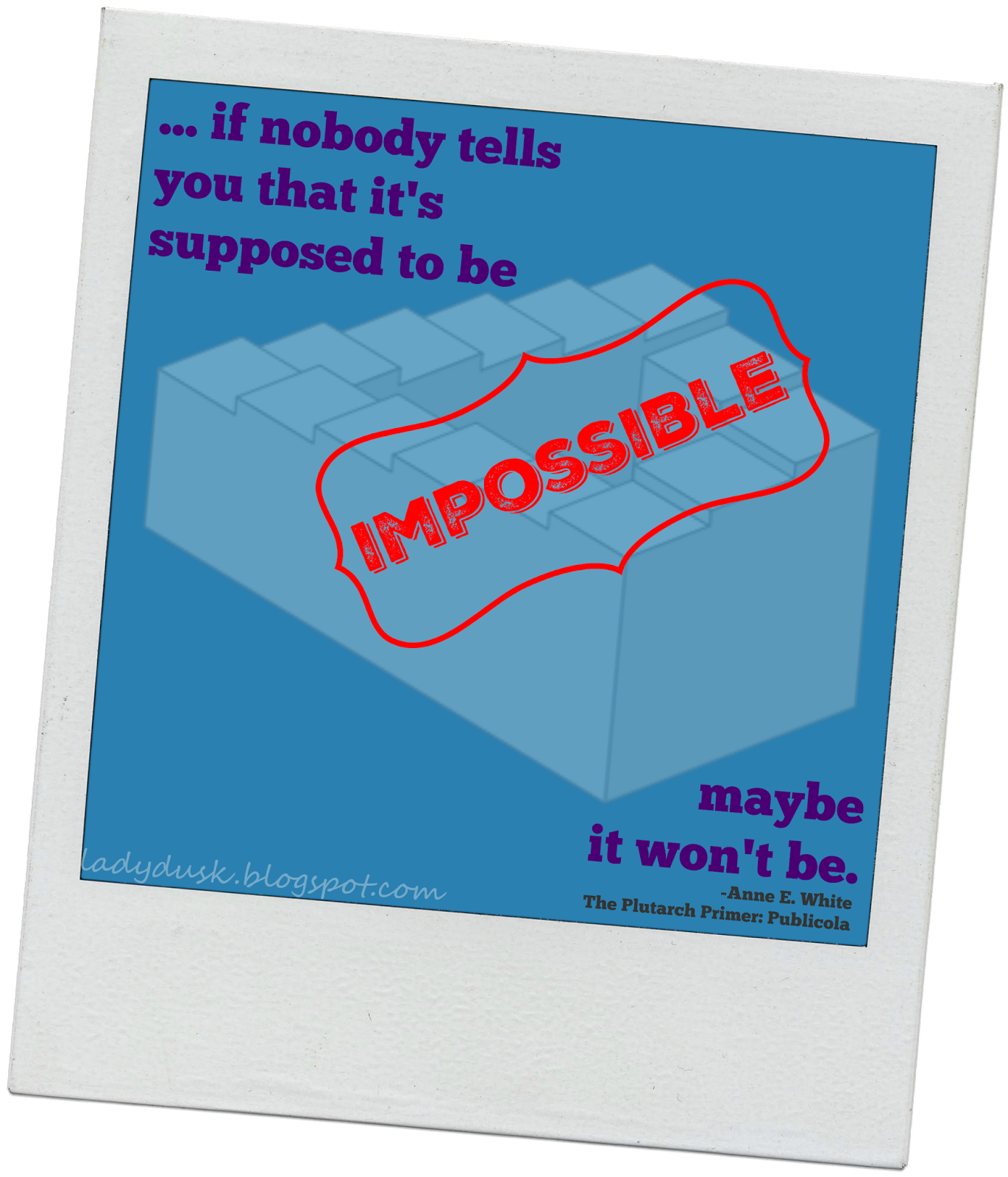Wednesdays with Words: Impossible

And we’re back.
If you had told me a year ago that we would be almost finished with our first year of Ambleside Online, that I would regularly be walking a new-to-our-family dog, that I would be subscribed to any (let alone several) podcasts, that I would have both thought of and completed a 31 Days series, I likely would have responded with “Impossible!”
Are there things in your life that are “impossible?” Things – good or bad – that you see in others or imagine that you disbelieve could ever come to fruition? What about things that seem unlikely because of their difficulty. I have a number of them. Biology seems impossible to me. Calculus.
What does impossible even mean? The prefix ‘im’ negates an idea. ‘Possible’ is the state of something that can be achieved or could possibly happen. In modern parlance, the word ‘impossible’ often used to indicate something that cannot be apprehended or comprehended or even, in general, done.

I guess Plutarch has this reputation. Anne E White, in her new book The Plutarch Primer: Publicola, explains that many people look at the idea of studying Plutarch with apprehension because it is supposedly “impossible” … or at the least, very very difficult. Since I come to studying Plutarch after reading Cindy and Brandy (and Jeanne! Cant forget Jeanne!) write about it for years, I have a less jaundiced eye. Yes, I see that it is difficult, but I also see – through their experiences – that it is worth the struggle. They – and Ambleside Online, of course – recommend using White’s study guides. The guides are an invaluable resource.
Before diving into Plutarch directly, White gives some introductory essays. One of the essays is entitled “Is Plutarch hard?” She tells us that the attitude we approach the study with will determine both our success (or lack thereof) and response to studying Plutarch.
But, isn’t it true that our success and response often are determined by the atitude with which we approach something new? Our fears, our distrusts, our tentativeness often results in distaste, dislike, and discouragement. On the other hand: our faith, our confidence, our willingness to try often result in delight, enjoyment, and courage.
This is true not only for us, the moms. It is even more true for our children. our attitudes affect their responses to new ideas and tasks.
‘);

Welcome back, Dawn. Well done on your 31 posts!
Thanks, Carol! Glad to be back.
Good reminders here, especially on how my own attitudes/thought processes/emotions affect my children's. Ouch! Daily, I think about how I'm not worthy of this enormous task of mothering! Praise God we have a Savior Who is & that He's there to guide, forgive & help us!!!!
Yes!